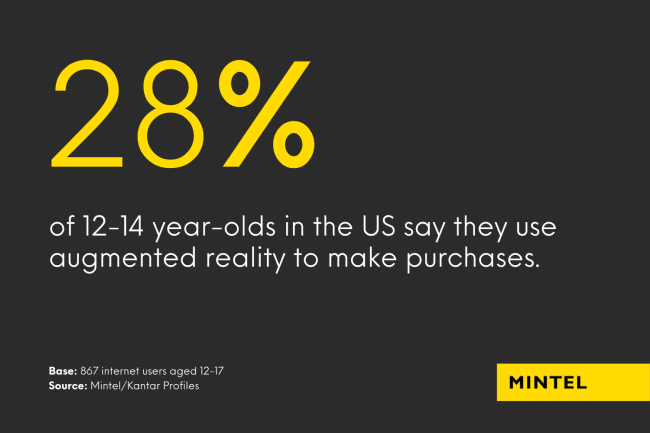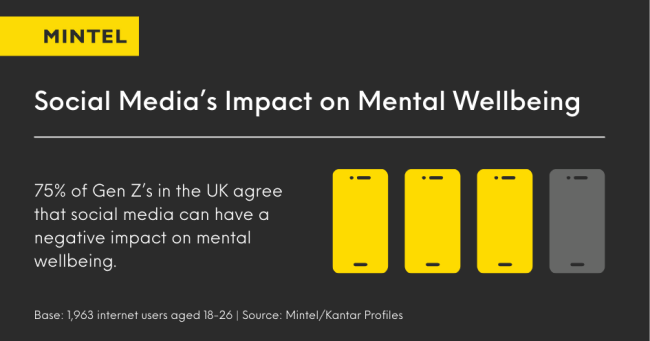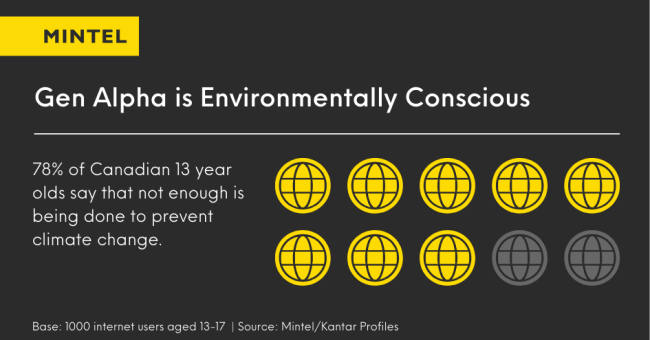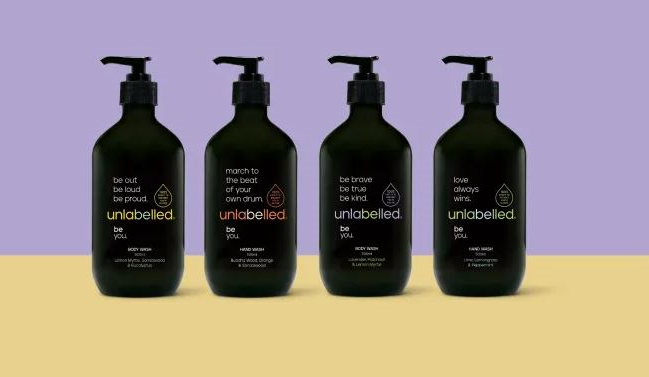Generation Alpha is already making waves in the beauty industry, driven by their fascination with skincare and cosmetics. As the next cohort of consumers, this digital-first generation—born between 2010 and 2025—is influencing trends in the beauty industry and redefining consumer expectations that reflect their diverse cultural influences, heightened social and environmental awareness, and an innate connection to technology.
With their spending power projected to reach an astounding $5.5 trillion by 2029, beauty brands can’t afford to ignore them. Join Mintel as we outline how brands can understand and engage with this emerging and powerful generation.
Gen Alpha and the Beauty Industry: A Call for Responsibility and Opportunity
Before diving into strategies for engaging with Gen Alpha, it’s crucial to understand the current landscape and the challenges emerging from their growing fascination with the beauty and skincare industry. Recent discussions, including insights shared on the Mintel Little Conversations Podcast by Mintel’s own Andrew McDougall and Base Beauty founder Jodi Katz, highlight a concerning trend: children are increasingly drawn to skincare products designed for adults, often to the detriment of their skin health.
Listen to Little Conversations
This young, curious generation, sometimes referred to as “Sephora Kids,” is immersing itself in the beauty sector, purchasing luxury items marketed to an older demographic. While their enthusiasm reflects a genuine interest in self-care and aesthetics, it also underscores a lack of understanding about the products they are using. Many of these items, with claims of anti-ageing or targeted treatments, are not age-appropriate and can disrupt the delicate balance of youthful skin.
Gen Alpha’s fascination with beauty products is fuelled by admiration and aspiration. They see beauty influencers and their routines as sources of inspiration, and they want to emulate these practices. However, this acceleration into adult-oriented skincare often results in routines that prioritise appearance over health—a gap that the beauty industry must address.
The beauty industry has a significant role to play in educating and guiding Gen Alpha, shifting the focus from appearance-centric messaging like “fine lines” and “wrinkle prevention” to promoting healthy skin habits. By emphasising essentials such as personal hygiene, sunscreen use, and gentle cleansing, brands can lay the foundation for lifelong skin health without overwhelming this impressionable audience. Gen Alpha is eager to learn, and they respond to aspirational education and entertainment, making it crucial for brands to create engaging, age-appropriate content that empowers this young generation to care for their skin with safe and effective skincare practices.
Gen Alpha Trends that Will Shape the Beauty Industry
Gen Alpha’s relationship with technology
As digital natives, Gen Alpha is comfortable with hybrid beauty shopping, combining online and offline experiences. For instance, over half of US 12-14-year-olds reported buying items online and picking them up in-store. This behaviour highlights the need for beauty brands to deliver seamless experiences across platforms, with mobile-first strategies at the forefront. However, recent technologies are shaping the beauty shopping experience for Gen Alpha.
Emerging technologies such as augmented reality (AR) and virtual reality (VR) are profoundly reshaping the beauty shopping landscape for Gen Alpha. Virtual try-on tools, enabled by these technologies, allow users to virtually see how makeup will look on them without physically applying them. Mintel’s research reveals that nearly a third of US 12-14-year-olds are already using augmented reality in their purchasing journey. This signals a strong interest and readiness for interactive, technology-driven solutions.

One brand that is leading in this space is L’Oréal, whose BeautyTech initiatives show how AI technology can enhance the customer experience. L’Oréal’s virtual 3D try-ons empower users to explore, test and select products in real-time before making a purchase. This technology not only bridges the gap between the physical and digital shopping worlds but also personalises the experience by tailoring product recommendations to individual preferences.
Self-acceptance
Gen Alpha is growing up with heightened awareness of mental health, with six in ten US children aged 12-14 reporting to Mintel that their parents have taught them how to take care of their mental wellbeing. This awareness fosters a generation who are attentive to social causes, such as body positivity and self-expression and are more likely to challenge traditional beauty standards. While there is growing resilience, Gen Z— Gen Alpha’s processors— are acutely aware of the pitfalls of social media, with three-quarters of Gen Z acknowledging that it can have a negative impact on mental wellbeing. This means that beauty brands have an opportunity to go beyond promotion and use social media as a tool to foster trust, connection and authenticity with Gen Alpha.


Movements like “filter versus reality” on platforms like TikTok reveal the push for authenticity as users contrast filtered and unfiltered images to challenge unrealistic beauty standards and spark widespread conversations. Brands can draw inspiration from Cult Beauty, which in 2023 banned retouched model imagery in its marketing, promoting self-acceptance among its consumers. By showcasing diverse, unaltered models, the brand has set a new standard in combating insecurities and redefining beauty norms. By embracing inclusivity and authenticity, beauty brands can foster meaningful connections, and build future loyalty with Gen Alpha, while leading a more mentally supportive industry.
Social media’s influence on purchasing journeys
Social media and influencer marketing are pivotal in shaping Gen Alpha’s beauty purchasing journey, as video media, such as YouTube, TikTok and Instagram have become a significant source for discovery and inspiration by blending entertainment and education. Mintel’s US Beauty Retailing Report reveals that seven in ten US consumers turn to social media for inspiration when shopping for beauty products, with this trend being even more pronounced among younger demographics.
Social media serves as a two-way communication channel, enabling Gen Alpha to engage with brands, creators and other consumers. Younger audiences often perceive user-generated content and influencer recommendations as more genuine and relatable than traditional advertising. Real-life experiences resonate deeply with almost half of German beauty consumers who prefer to shop with brands that make them feel part of a community. An example of one brand that is driving consumers’ emotional investment is direct-to-consumer (DTC) retailer Beautypie. Through its membership-based model, members not only enjoy significant savings but are also encouraged to participate actively by sharing reviews, accessing professional makeup tips, and contributing ideas or content for social media. By leveraging authenticity, co-creation, and technology, brands like Beautypie strengthen emotional bonds and establish lasting connections with future consumers.
Environmentally conscious
Many of Gen Alpha are growing up with a strong environmental consciousness and feel a profound responsibility to address the damage caused by previous generations. They are acutely aware that the consequences of inaction will affect their future. This accountability drives them to be advocates for change—reflected in the fact that nearly eight in ten Canadian 13-year-olds believe that not enough is being done to combat climate change.

This heightened environmental concern translates into Gen Alphas’ preferences and future purchasing decisions in the beauty industry. They already show signs of being mindful of how their choices impact the planet, and they are likely to specifically seek out products that align with their sustainability values in the future. Parents of Gen Alpha also play a role in shaping their values, with seven in ten UK parents of Gen Alpha children reporting buying eco-friendly beauty products, compared to just half of non-alpha-parents.
Both Gen Alpha and their parents are highly attuned to greenwashing and prefer brands that demonstrate clear, transparent, and genuine sustainability practices. Beauty products with natural or organic ingredients and ‘clean’ formulations hold significant appeal for this generation, with six in ten US beauty consumers aged 12–14 believing that a product labelled ‘clean’ or ‘natural’ must also be safe to use. By catering to Gen Alpha’s environmental values, beauty brands have an opportunity not only to meet the expectations of the next generation but also to become leaders in driving meaningful, positive change in the industry.
Diversity and inclusion
Members of Gen Alpha are emerging as one of the most socially conscious generations, placing a strong emphasis on diversity, equity, and inclusion (DEI). They are more likely to support beauty brands that authentically represent a wide array of identities and align with their values.
For Gen Alpha, inclusivity won’t just be a preference but a baseline expectation. Beauty brands looking to appeal to this audience must focus on meaningful DEI initiatives by showcasing models and spokespeople from diverse backgrounds, creating products that cater to all skin tones, hair and body types, and transparently sharing their DEI efforts. This authenticity is critical for gaining the trust and loyalty of this socially aware generation.
Gen Alpha’s commitment to inclusivity also reflects their belief in breaking down traditional gender roles, with three-quarters of US 12-14-year-olds believing that all genders can use beauty products. This openness has led to a stronger focus on using beauty products as a way to express individuality and personality. A standout leader in this space is Unlabelled, a brand that embraces self-expression through its inclusive body care line aimed at encouraging young people to be themselves and its commitment to donating profits to mental health charities. By aligning with causes like body image and LGBTQIA+ advocacy, Unlabelled fosters trust and connection with this socially conscious generation that is likely to build lasting relationships and inspire loyalty.


How Can Your Brand Market to Gen Alpha?
Though still growing into their role as consumers, Gen Alpha is already reshaping the beauty industry with its emphasis on tech-led innovation, inclusivity, and sustainability. As their influence and purchasing power expand, brands must align with their demand for authenticity and socially conscious practices, ensuring they resonate with the values shaping this forward-thinking generation.
Don’t miss out on the next generation of consumers.
Subscribe to Spotlight today, our free content hub, providing insights, fresh perspectives and ground-breaking analysis into the markets that matter.
Sign up for a free Spotlight Subscription
Want to find out more about Gen Alpha’s unique consumer demands? Read the next Spotlight installment Meet Gen Alpha: The Next Generation of Food Consumers and unpick evolving relationship between Generation Alpha and food!